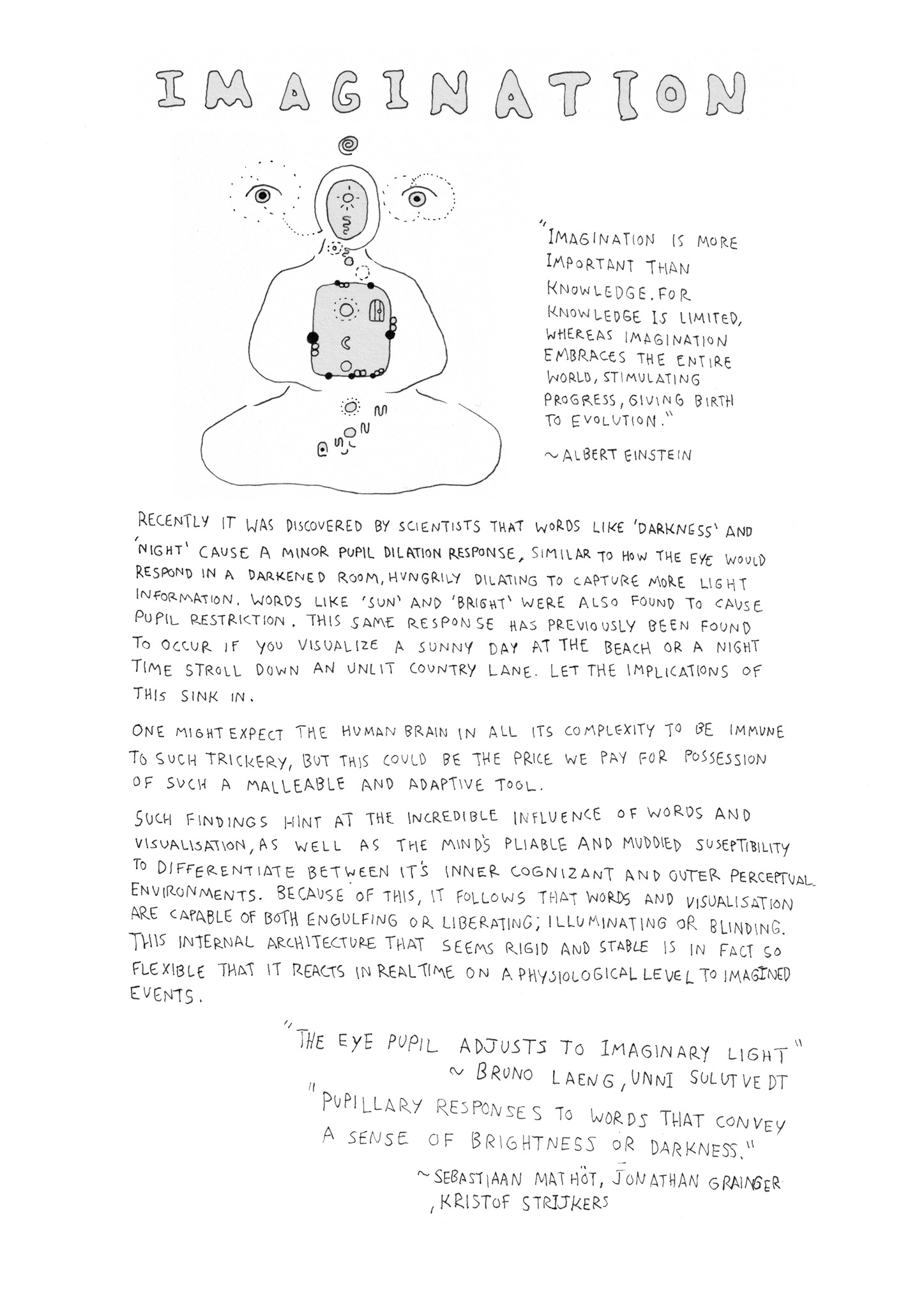Imagination
Recently it was discovered by science types that words like ‘darkness’ and ‘night’ cause a minor pupil dilation response. Similar to how the eye would respond in a darkened room, the eye hungrily dilates to capture more light information. Words like ‘Sun’ and ‘Bright’ were also found to cause pupil restriction. The same response was found visualizing a sunny day at the beach or a night stroll in a dark forest. Let the implications of this set in.
One might expect the human brain in all its complexity to be immune to such trickery, but this could be the price we pay for possession of such a malleable and adaptive tool.
Such findings hint at the incredible influence of words and imagination, as well as the mind’s pliable and muddied ability to tell between its inner and outer perceptual environments. Because of this, it follows that words and imagination are capable of both engulfing or liberating; illuminating or blinding. We may have much more influence over our minds than we believe possible currently. This internal architecture that seems rigid and stable is in fact so flexible that it reacts in real time on a physiological level to imagined events. Perhaps the most effective means to align oneself as closely as possible to reality would be to become aware of the empty quality inherent in such easily influenced and variable cognition, while building a frame work for negating self limiting beliefs. Don’t contaminate your perception.

https://www.sciencedaily.com/releases/2013/12/131203091618.htm
https://www.sciencedaily.com/releases/2017/06/170615084852.htm
